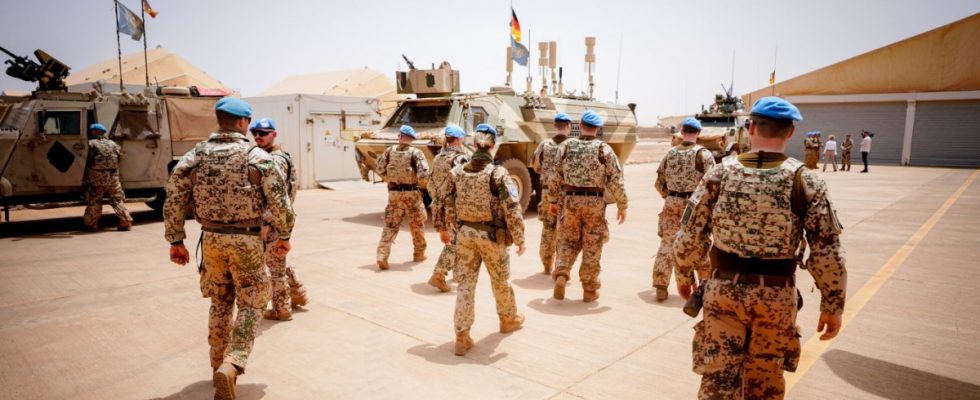The military government of the West African crisis state of Mali is demanding the immediate withdrawal of the UN peacekeeping mission Minusma, which has been stationed in the country for a decade. Foreign Minister Abdoulaye Diop accused the United Nations blue helmets, including hundreds of Bundeswehr soldiers, of having become “part of the problem” instead of having reacted adequately to the security situation. “Against this background, the Malian government is demanding the immediate withdrawal of Minusma. However, the government is ready to work with the United Nations on this,” said Diop at the UN Security Council in New York on Friday.
Mali’s transitional government under Colonel Assimi Goïta reiterated its “strategic” decision late on Friday evening to demand the withdrawal of Minusma. It was “impossible to keep the peace in a situation where there is no peace to keep,” she said. She accused the UN mission of having reversed the mandate to support the Malian authorities.
The federal government wants to end the deployment of the Bundeswehr in orderly steps, even after the call for immediate withdrawal. A spokeswoman for the Ministry of Defense said in Berlin on Saturday that negotiations at the United Nations would be supported. “We are not surprised that the Malian transitional government and Russia will use the forthcoming extension of the UN mandate to make political capital out of it. We are still interested in an orderly withdrawal.”
The military junta’s announcement came shortly before a long-awaited constitutional referendum in Mali this Sunday. Mali’s citizens are set to vote on a new constitution more than two years after the last military coup, in what is believed to be the first step towards presidential elections by next March. The interim government is campaigning aggressively for the adoption of the draft, which, among other things, gives the president more power.
The UN mission to stabilize the country has been active in Mali since 2013. At that time, following the collapse of neighboring Libya and a rebellion by the nomadic Tuareg in 2012, Islamist terrorists overran the north of the country on the edge of the Sahara. A military intervention by the former colonial power France pushed back the Islamists, some of whom were allied with the terrorist militias IS and al-Qaeda, only temporarily. Since then, the terrorist groups have been spreading in the north and center of Mali and in its neighboring countries.
Up to 2000 Russian Wagner mercenaries are active in Mali
The military took power in two coups in 2020 and 2021 in the Sahel country with around 23 million inhabitants and turned to Russia, from which it promised more robust help against the Islamists. While the military junta only speaks of trainers, it is estimated that up to 2,000 Russian Wagner mercenaries are active in the country. France then ended its military operation.
Germany wants to withdraw its soldiers by May 31, 2024. The Bundestag extended the mandate for the last time at the end of May. There are currently almost 1,100 Bundeswehr soldiers in Mali. Activities of the Bundeswehr have recently been restricted again and again. For example, Bamako refused flight permits for the Heron reconnaissance drone operated by the Germans on behalf of the UN.
The United Nations depend on the consent of the country to operate a peacekeeping mission. The mandate of Minusma should have been extended by another year by the UN Security Council until June 30th. The head of mission and special envoy of the UN Secretary-General, El-Ghassim Wane, said in the Security Council that Minusma had made every effort to implement its mandate in the best possible way despite the “many restrictions to which it is subject, including restrictions on freedom of movement”.

